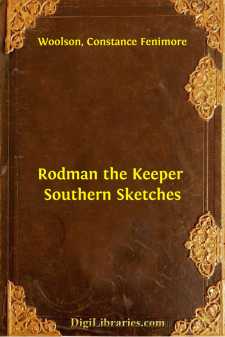Categories
- Antiques & Collectibles 13
- Architecture 36
- Art 48
- Bibles 22
- Biography & Autobiography 816
- Body, Mind & Spirit 145
- Business & Economics 28
- Children's Books 18
- Children's Fiction 14
- Computers 4
- Cooking 94
- Crafts & Hobbies 4
- Drama 346
- Education 58
- Family & Relationships 59
- Fiction 11834
- Foreign Language Study 3
- Games 19
- Gardening 17
- Health & Fitness 34
- History 1378
- House & Home 1
- Humor 147
- Juvenile Fiction 1873
- Juvenile Nonfiction 202
- Language Arts & Disciplines 89
- Law 16
- Literary Collections 686
- Literary Criticism 179
- Mathematics 13
- Medical 41
- Music 40
- Nature 179
- Non-Classifiable 1768
- Performing Arts 7
- Periodicals 1453
- Philosophy 66
- Photography 2
- Poetry 897
- Political Science 203
- Psychology 45
- Reference 154
- Religion 516
- Science 126
- Self-Help 86
- Social Science 82
- Sports & Recreation 34
- Study Aids 3
- Technology & Engineering 59
- Transportation 23
- Travel 463
- True Crime 29
Our website is made possible by displaying online advertisements to our visitors.
Please consider supporting us by disabling your ad blocker.
Rodman the Keeper Southern Sketches
Description:
Excerpt
RODMAN THE KEEPER.
The long years come and go,And the Past,The sorrowful, splendid Past,With its glory and its woe,Seems never to have been.—Seems never to have been?O somber days and grand,How ye crowd back once more,Seeing our heroes' graves are greenBy the Potomac and the Cumberland,And in the valley of the Shenandoah!When we remember how they died,—In dark ravine and on the mountain-side,In leaguered fort and fire-encircled town,And where the iron ships went down,—How their dear lives were spentIn the weary hospital-tent,In the cockpit's crowded hive,——it seemsIgnoble to be alive!TB."K of what? Keeper of the dead. Well, it is easier to keep the dead than the living; and as for the gloom of the thing, the living among whom I have been lately were not a hilarious set."
John Rodman sat in the doorway and looked out over his domain. The little cottage behind him was empty of life save himself alone. In one room the slender appointments provided by Government for the keeper, who being still alive must sleep and eat, made the bareness doubly bare; in the other the desk and the great ledgers, the ink and pens, the register, the loud-ticking clock on the wall, and the flag folded on a shelf, were all for the kept, whose names, in hastily written, blotted rolls of manuscript, were waiting to be transcribed in the new red-bound ledgers in the keeper's best handwriting day by day, while the clock was to tell him the hour when the flag must rise over the mounds where reposed the bodies of fourteen thousand United States soldiers—who had languished where once stood the prison-pens, on the opposite slopes, now fair and peaceful in the sunset; who had fallen by the way in long marches to and fro under the burning sun; who had fought and died on the many battle-fields that reddened the beautiful State, stretching from the peaks of the marble mountains in the smoky west down to the sea-islands of the ocean border. The last rim of the sun's red ball had sunk below the horizon line, and the western sky glowed with deep rose-color, which faded away above into pink, into the salmon-tint, into shades of that far-away heavenly emerald which the brush of the earthly artist can never reproduce, but which is found sometimes in the iridescent heart of the opal. The small town, a mile distant, stood turning its back on the cemetery; but the keeper could see the pleasant, rambling old mansions, each with its rose-garden and neglected outlying fields, the empty negro quarters falling into ruin, and everything just as it stood when on that April morning the first gun was fired on Sumter; apparently not a nail added, not a brushful of paint applied, not a fallen brick replaced, or latch or lock repaired. The keeper had noted these things as he strolled through the town, but not with surprise; for he had seen the South in its first estate, when, fresh, strong, and fired with enthusiasm, he, too, had marched away from his village home with the colors flying above and the girls waving their handkerchiefs behind, as the regiment, a thousand strong, filed down the dusty road. That regiment, a weak, scarred two hundred, came back a year later with lagging step and colors tattered and scorched, and the girls could not wave their handkerchiefs, wet and sodden with tears. But the keeper, his wound healed, had gone again; and he had seen with his New England eyes the magnificence and the carelessness of the South, her splendor and negligence, her wealth and thriftlessness, as through Virginia and the fair Carolinas, across Georgia and into sunny Florida, he had marched month by month, first a lieutenant, then captain, and finally major and colonel, as death mowed down those above him, and he and his good conduct were left. Everywhere magnificence went hand in hand with neglect, and he had said so as chance now and then threw a conversation in his path.
"We have no such shiftless ways," he would remark, after he had furtively supplied a prisoner with hard-tack and coffee.
"And no such grand ones either," Johnny Reb would reply, if he was a man of spirit; and generally he was.
The Yankee, forced to acknowledge the truth of this statement, qualified it by observing that he would rather have more thrift with a little less grandeur; whereupon the other answered that he would not; and there the conversation rested....







